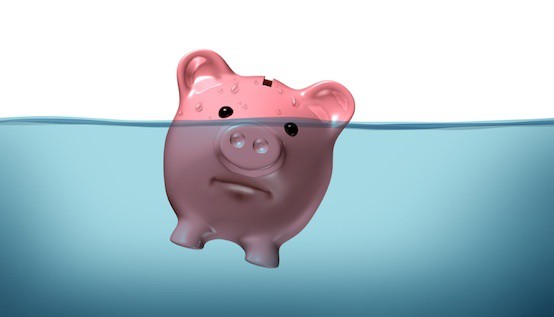Money is a contentious issue in any discussion. Everyone wants more of it, and no one believes they have enough. John D. Rockefeller, one of the few men to hold the ‘World’s Richest Man’ title, was asked how much money was enough. His answer was very straightforward, ‘one more dollar,’ he said. This just goes to solidify the argument that money is a moving target, an illusion of sorts. The closer you get to it, the further it moves from you.
People borrow money for various reasons varying from emergencies, to paying bills or just to maintain social standing. Borrowing is a concept as old as time itself. The problem comes in when you’re unable to repay the debt. At one point or another, you –or someone you know, have been threatened to repay their loan or be included in the Credit Revenue Bureau (CRB). With the many easily accessible money lending avenues, it is sometimes impossible not to take a loan; you can always validate the reason later.
A Swahili proverb loosely translates to ‘you borrow in joy but pay back in mourning.’ Paying back borrowed money isn’t always glamorous, but neither is being stuck in debt. Here are a few techniques you can use to get yourself out of debt. Also, check out 11 life hacks for people going through tough financial situations
- Make a conscious decision to stop borrowing
The first step to getting yourself out of the debt hole is to stop digging deeper. It may sound easy, but when you’re in debt, you’ll do anything to seem like you’re breaking even. Even taking one debt just to pay another. The way to get there is relatively simple. First, you have to account for where you have been taking all the borrowed money, second, you need to create a priority list, noting what is essential and what’s merely a luxury. Then eliminate the unnecessary luxuries, if you indeed are intent on being debt-free, your luxury list will involve things you can live without but don’t want to. For instance, it makes no sense to stock your wardrobe weekly with borrowed money.

- Have an emergency kitty
You’ve just made a conscious decision to unnecessarily borrow money. Through the course of your debt repaying period, it’s presumable you will not have a lot of cash to spare. You cannot rule out the possibility of an emergency, thus, before you can start paying off debt, make sure you have enough put away for a quick emergency.
- Set a budget and stick to it
Not planning for where your money goes is a recipe for overspending it. You need to plan for your money right to the last penny. At this point, you can revisit the luxuries versus necessities you made and figure out what you don’t need to add to your budget. There are apps and software to help you create a budget and keep track of your expenses. I use Money Manager to keep tabs on my expenditure. You can download it from the PlayStore for free.
- Prioritize your debts
Some debts will get you in trouble faster than others. Organize them in urgency so you can pay off the right people first. For instate, if you have borrowed from both a friend and a bank, it’s wiser to pay off the bank first. Your friend will not send a debt collector or threaten to forward you to the CRB, but a bank can and will do both of the above. Also, if you can talk to your creditors and ask for an extension, that would work to your benefit.
- Pay off your debt
The above steps were all preparing you for debt paying. When the money comes in, you might feel like you want to go back on the progress, but just remember on the other side, lies an opportunity for you to be debt free.
Note: All the steps mentioned require dedication and commitment. After you’ve paid off your debt, focus your energy and resources on living along with your standards subsequently, being debt free. Then, you’ll experience the free air of not owing anyone, no more hiding in dark alleys to evade your creditor.
Want to do more with your finances? Here are 7 Common Financial Mistakes & How To Avoid Them
Personal Finance: Practical Steps To Get Out Of Debt
How To Increase Your Personal Income Without Going Into Debt
Finances: How You Deal With Debt Can Make You Or Break You! What Are Your Debt Habits?
Finances 101: How To Create A Budget And Different Budgeting Methods You Can Use

